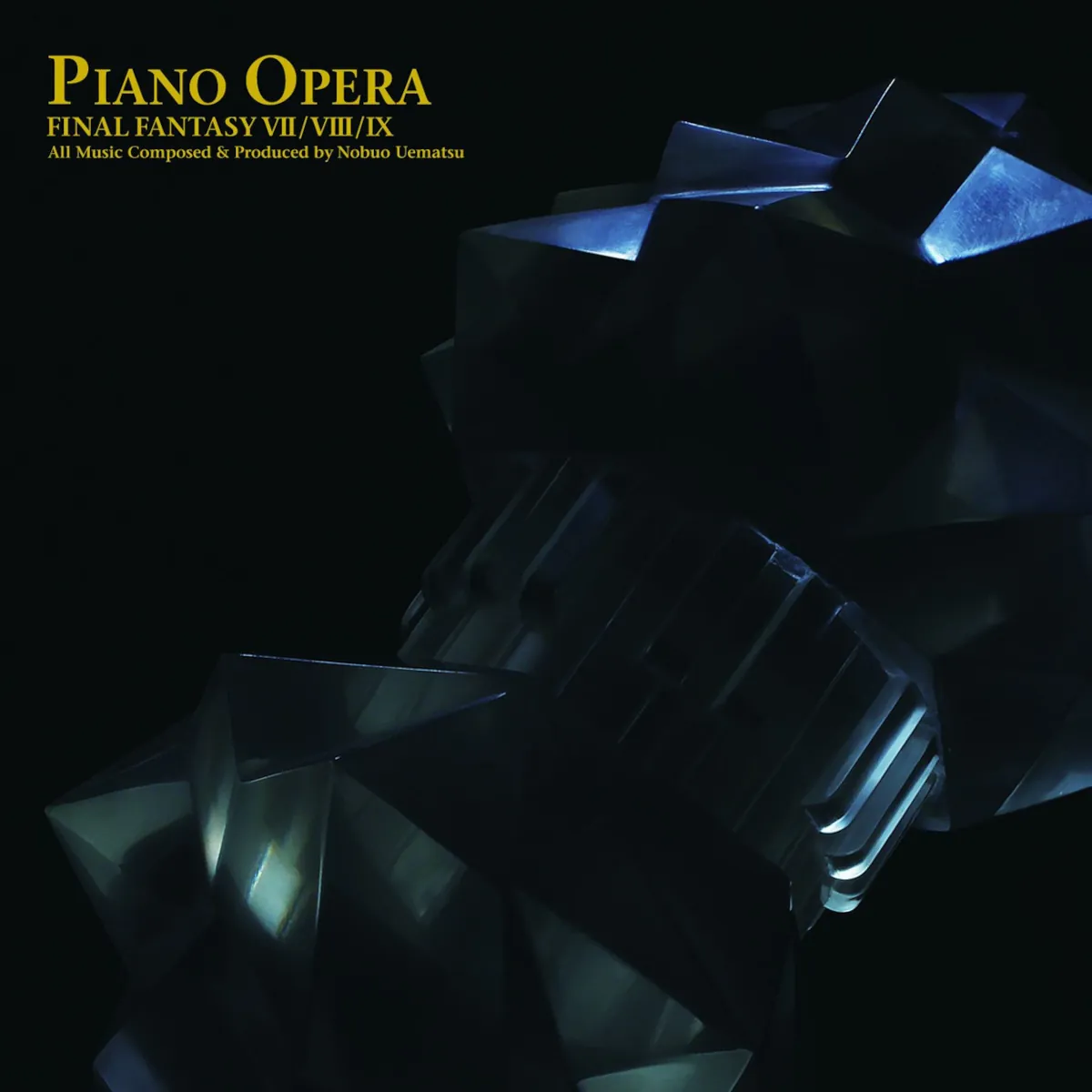No doubt that when Uematsu composed music for the Final Fantasy series he envisioned sixty iterations of piano arrangements of his work for the next thirty or fifty years. Really, he should be lauded for his humility, because his music will be redone for at least the next seventy years. So, here we are, another arrangement album in which Uematsu’s work is performed by an admirer. The young Hiroyuki Nakayama is no stranger to performances, boasting work on Lost Odyssey and Xenoblade. Perhaps his youthful creativity is what piano renditions need, as this album breathes new life into classics.
Some tracks from Piano Opera Final Fantasy VII/VIII/IX may seem familiar to piano lovers, while others deviate from the norm. Rest assured that those redone tracks—”Ami,” “Cosmo Canyon,” “You’re Not Alone,” “Rose of May,” and “Melodies of Life”—merit revisiting. Nakayama’s unique take on each album and skill at the keys offers a different flavor to popular themes. In fact, in this reviewer’s opinion, several of these tracks are probably the best performances of their ilk. I especially like how “Ami” departs from previous revisions, though this entry seems the most intuitively played with regard to Uematsu’s work.
“The Man with the Machine Gun” is widely regarded as one of the most intense tracks in the Final Fantasy library; that is, until Nakayama got his hands on it. Here, one simply has to replace the aforementioned “one of” with “the.” Starting off sweet and serene, I wondered what exactly I was listening to. Not quite hooked initially, I didn’t recognize what I was getting into until about 00:50 had passed, then when 01:17 hit, the music drove my legs and head. Hey, I have an idea: let’s take a heart-pounding track, add layers, and slam down on the keys (but in a totally eloquent sorta way). The initial minute or so can be forgiven in light of the energy instilled into this already adrenaline-infusing battle theme.
Following immediately after, we’re greeted with a different form of intensity: one that pulls at the heart. Although the formerly neglected FFIX library has been revisited several times in the past couple of years, few iterations match the wind-up and wind-down of “You’re Not Alone,” a song that ably communicates wordless lyrics that emphasize what the title purports. Pianos talk—this arrangement is proof.
On the other hand, an oft overlooked track from a constantly revisited score reaches Nakayama’s selection. A personal favorite of mine, “Words Drowned by Fireworks” complements the mini-climax of incoming tragedy, a romantic reprieve met with a gloriously directed cinematic. Misty-eyed and with a twinge in my nose, I can write with puckered chin that this track does Uematsu’s original track justice.
Truly, all tracks within this arrangement signify that Nakayama not only put forth considerable effort in his performance, but also respects Uematsu’s work tremendously. While the former warrants a purchase alone, any fan can see through precise, stiff iterations that lack heart. Indeed, I have reviewed previous albums as such. Not so with Nakayama’s Piano Opera Final Fantasy VII/VIII/IX. With its varied track selection, unique choices, and complex finger-flicking of keys, this album is a must-have.





